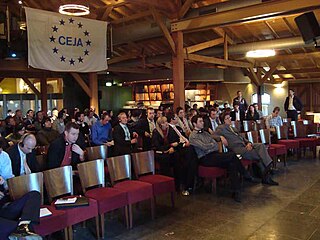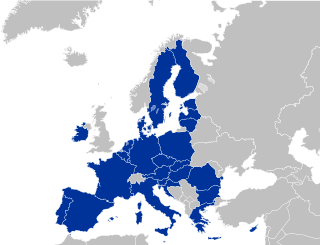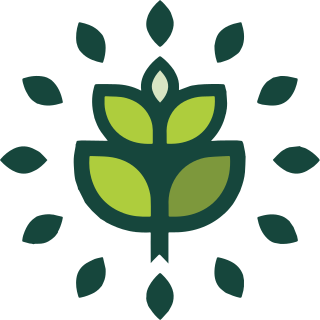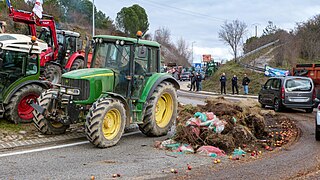
Customs is an authority or agency in a country responsible for collecting tariffs and for controlling the flow of goods, including animals, transports, personal effects, and hazardous items, into and out of a country. Traditionally, customs has been considered as the fiscal subject that charges customs duties and other taxes on import and export. In recent decades, the views on the functions of customs have considerably expanded and now covers three basic issues: taxation, security, and trade facilitation.

The economy of Andorra is a developed and free market economy driven by finance, retail, and tourism. The country's gross domestic product (GDP) was US$6.00 billion in 2024. Attractive for shoppers from France and Spain as a free port, Andorra also has developed active summer and winter tourist resorts. With some 270 hotels and 400 restaurants, as well as many shops, the tourist trade employs a growing portion of the domestic labour force. An estimated 10 million tourists visit annually.

Relations between the European Union (EU) and the People's Republic of China (PRC) or Sino–European relations are bilateral relations that were established in 1975 between the PRC and the European Community. The EU is the PRC's largest trading partner, and the PRC is the EU's largest trade partner.

Russia–European Union relations are the international relations between the European Union (EU) and Russia. Russia borders five EU member states: Estonia, Finland, Latvia, Lithuania and Poland; the Russian exclave of Kaliningrad is surrounded by EU members. Until the radical breakdown of relations following the 2022 Russian invasion of Ukraine, the EU was Russia's largest trading partner and Russia had a significant role in the European energy sector. Due to that full-scale invasion, relations became very tense after the European Union imposed sanctions against Russia. Russia placed all member states of the European Union on a list of "unfriendly countries", along with NATO members, Switzerland, Ukraine, and several Asia-Pacific countries.

Poland–Ukraine relations revived on an international basis soon after Ukraine gained independence from the Soviet Union in 1991. Various controversies from the shared history of the two countries' peoples occasionally resurface in Polish–Ukrainian relations, but they tend not to have a major influence on the bilateral relations of Poland and Ukraine.

Rural Solidarity is a trade union of Polish farmers, established in late 1980 as part of the growing Solidarity movement. Its legalization became possible on February 19, 1981, when officials of the government of the People's Republic of Poland signed the so-called Rzeszów - Ustrzyki Dolne Agreement with striking farmers. Previously, Communist government had refused farmers’ right to self-organize, which caused widespread strikes, with the biggest wave taking place in January 1981. The Rural Solidarity was officially recognized on May 12, 1981, and, strongly backed by the Catholic Church of Poland, it claimed to represent at least half of Poland's 3.2 million smallholders.

The Conseil Européen des Jeunes Agriculteurs (CEJA) is an umbrella organisation gathering young farmers from all over Europe and is one of the key advocates for the agricultural sector in Europe. This non-profit organisation currently has 33 member organisations from 22 EU member states and two observer members from non-EU countries, representing around two million young farmers. Its office is located in Brussels.
This is a list of crises situations and major protests in countries of Europe since the year 2000.

The Polish–Ukrainian border is the state border between Poland and Ukraine. It has a total length of 529 km (329 mi) to 535 km (332 mi).

Jérémy Decerle is a Charolais breeder, French politician and former trade unionist. He was president of the "Young Farmers" union from 2016 to 2019, before being elected Member of the European Parliament in 2019, on the list supported by Emmanuel Macron.

The European Union–Mercosur free trade agreement is a proposed free trade agreement on which the European Union and Mercosur reached agreement in principle in 2019. The planned deal was announced on 28 June at the 2019 G20 Osaka summit after twenty years of negotiations. The agreement is criticized by NGOs, scientists, unions, farmers and indigenous people.
Food and agriculture in Nazi Germany describes the food and agricultural policies of Nazi Germany and their consequences from 1933 when the Nazis took power in Germany until 1945 when Germany was defeated in World War II (1939–1945) by the allied nations. Starvation and its associated illnesses killed about 20 million people in Europe and Asia during World War II, approximately the same as the number of soldiers killed in battle. Most of the deaths from starvation in Europe were in the Soviet Union and Poland, countries invaded by Germany and occupied in whole or part during the war.

The AGROunion is a left-wing agrarian socialist political movement in Poland formed by Michał Kołodziejczak. AGROunia criticizes the actions of current politicians in relation to the state of agriculture in Poland and organizes agricultural protests and information campaigns. The party declares to be built on agrarian socialist ideals and to have taken inspiration from the left-wing nationalist Samoobrona movement, Fighting Solidarity, as well as pre-war agrarian movements such as Polish People's Party "Wyzwolenie". Officially registered in 2022, the party became a socialist party with agrarian and Catholic overtones, with the leader of the party stating in 2022 that "faith, tradition, and Saint Mary herself are all elements of socialism for me". The party denies the labels of populism and nationalism.
A global energy crisis began in the aftermath of the COVID-19 pandemic in 2021, with much of the globe facing shortages and increased prices in oil, gas and electricity markets. The crisis was caused by a variety of economic factors, including the rapid post-pandemic economic rebound that outpaced energy supply, and escalated into a widespread global energy crisis following the Russian invasion of Ukraine. The price of natural gas reached record highs, and as a result, so did electricity in some markets. Oil prices hit their highest level since 2008.

The 2024 French farmers' protests are a series of protests and road blockages organized non unionized farmers and agricultural unions since 18 January 2024. The farmers protested against low food prices, proposed reductions in state subsidies for farmers' diesel fuel, and a EU-Mercosur free trade agreement.

The Monument to John Cockerill is a group of statues erected in Brussels, Belgium, in memory of the Belgian-British industrialist John Cockerill, a pioneer of the steel industry and the railways in Belgium in the 19th century, as well as the industrial workers of Belgium.

Since November 2023, the border between Poland and Ukraine has been subject to regular blockades by Polish protesters. The blockade extended to all agricultural goods exported from Ukraine.
The 2024 Polish farmer protests are a series of ongoing protests and road blockages which occurred in early 2024 when Rural Solidarity, the largest farmers' union in Poland, called a strike to protest against the European Green Deal and continued grain imports from Ukraine.
Dan Sobovitz is an Israeli-European democracy and human rights activist, public speaker, stage and podcast moderator, communication adviser for international organisations, and tech evangelist. He became known for having organised the private, EU-supported operation to provide medications for the 7 October hostages and for Palestinian children, for campaigning for the release of the Israeli hostages, for fighting democratic backsliding in Israel and across Europe and for and seeking legal action on the rights of same-sex parents. He also gained attention for unorthodox events he conceptualised and moderated for European Commission Executive Vice President Maros Sefcovic, including live streaming from autonomous vehicles, virtual reality of the launch of EU satellites into space, and crowdsourcing EU policies among startups and youth.














